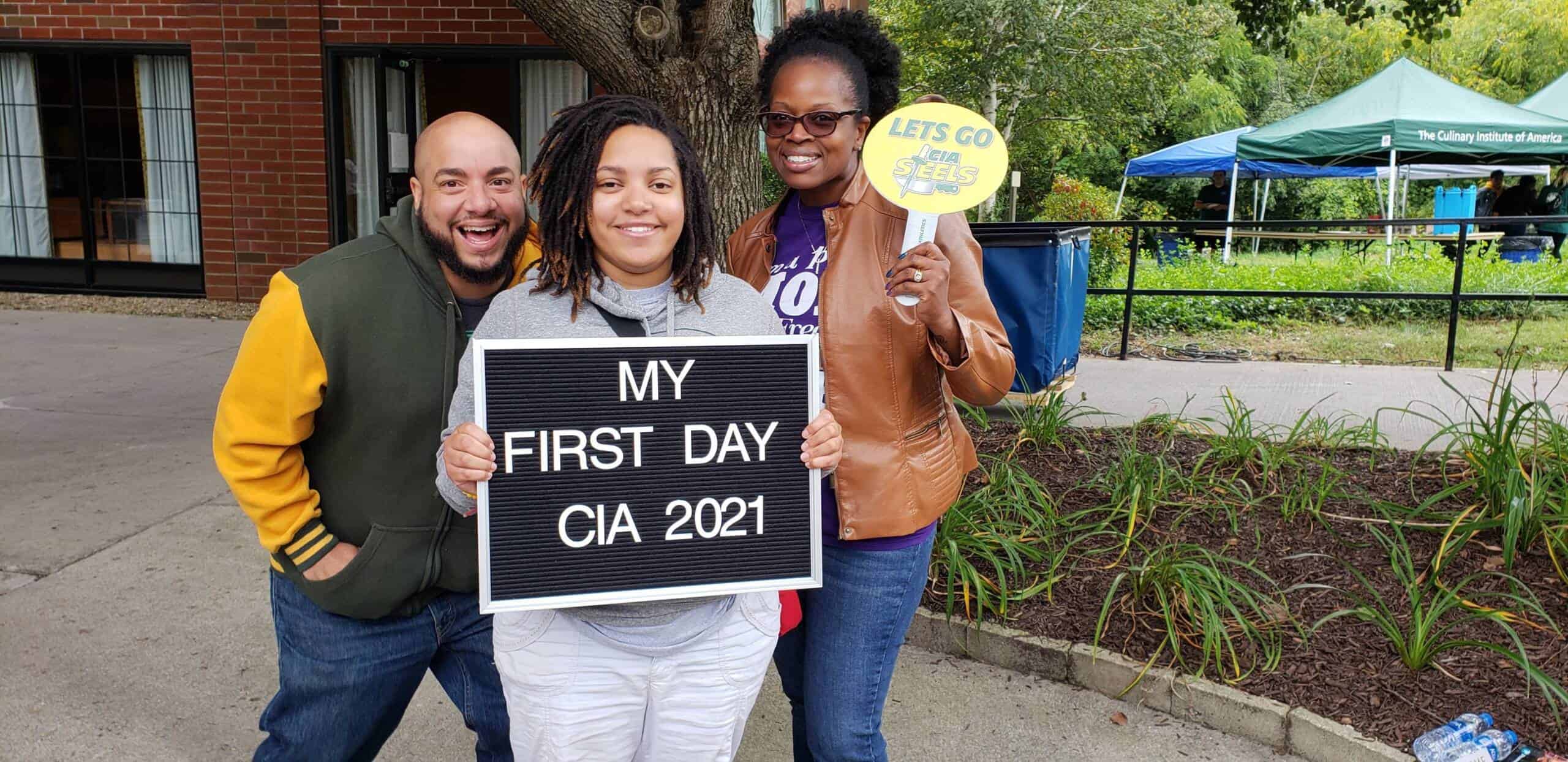Congratulations, your child has been accepted to CIA! We know you are very proud of your student and we are, too. Attending college starts the next chapter of their lives and great opportunities lie ahead for them. This transition can be an emotional roller coaster, and it can be hard to let go—know you’re not alone.
Here are a few tips from Dr. J.J. Manley, associate dean of campus life and student development, to help you send your kids off on their new adventure:
- Your child is our young adult. We see your student, as a young adult—someone who can make their own decisions, sometimes with guidance, sometimes without. We give them a lot of freedom as well as a lot of responsibility. And we treat them like adults to help them grow and develop.
- Let them make their own decisions. As a parent, it is only natural that you want what is best for your child. When they get into a difficult situation you want to help make it better. In order to help your student be as successful as they can be, you should encourage them to make their own decisions. Give them advice, ask them to seek out advice from others, but in the end, let them make the decision. This helps them learn to live with the consequences of that decisions—always a good lesson.
- Expect Change. Once your child is on his or her own at college, there is a very good chance that they will change and your support during this time of exploration is very important. They may come home for the first time with a piercing or a tattoo, and their friends may be very different from the ones you knew when they were in high school. You will find that you don’t know their day-to-day as intimately as you did when they were children and that is as it should be—though it’s hard. If you can accept that change is coming, it will be easier to navigate.
- Taken with a Grain of Salt. We understand that in the eyes of a parent, their child is special, and some believe, can do no wrong. And when your student calls home to tell you about a difficult time they are having, it is only natural that you believe what they are telling you. Please remember there are always at least two sides to a situation, more often three or four. So, take their complaints with a grain of salt and get the whole story.
- Don’t Take Sides. When your child is in a difficult situation like having roommate concerns, missing a college deadline, or violating a college policy, try not to take sides. Again, there is often information that you may not know. Instead, be supportive and encourage them to communicate with the appropriate people—their professor, their RA/RHD, or a specific college office.
- Respect the Process. In college, there is a process for just about everything. Sometimes these processes take time. There is a reason these processes are in place. And while it may seem like no big deal for an office or person to make an exception for your student, if you multiply that by thousands of students who are at the college, you can see how complications can occur.
- Build Collaborative Relationships. At some point, you may call the college because you feel like you need to intervene on behalf of your child. If, and when, this time comes, try to take the perspective of working collaboratively with the person or office you are calling to decide the best way to handle the situation to help your student. Many times, offices need to work directly with your student to resolve the issue, so if you can support them by encouraging your student to communicate directly with that person or office, it can accomplish a lot. All of us are working together so your child will succeed here.
- Encourage Involvement. During the first six weeks, you may get a call from your child saying she or he is bored, or homesick, or doesn’t fit in. The best thing you can do is encourage them to get involved. By joining a club; becoming a member of student government or the Residence Hall Association; working as a student justice, orientation assistant, or a member of an intramural team; or applying to become an RA goes a long way to resolve those issues. The more involved they are the more likely they are to connect with and succeed in college. Your child’s RA and RHD can help them figure out the best way for them to get involved.
- Visit during the Chili Cook-Off. It’s a perfect opportunity for your student to show you around their home away from home. The Chili Cook-Off is a great CIA tradition and whether they admit it or not, they will be glad you came.
- Send Mail. In this day and age of mass communication, email, IM, cell phones, it is still true that everyone likes to receive mail. Write them an actual letter, send them a package or a card, just because. This will make their day more than anything else you can do. If you want to do even more, contact their RHD and work with them to plan a surprise for your child to mark a special occasion.
And remember, this is now their home away from home. We promise to take care of them. Welcome to the #proud2bCIA family!

